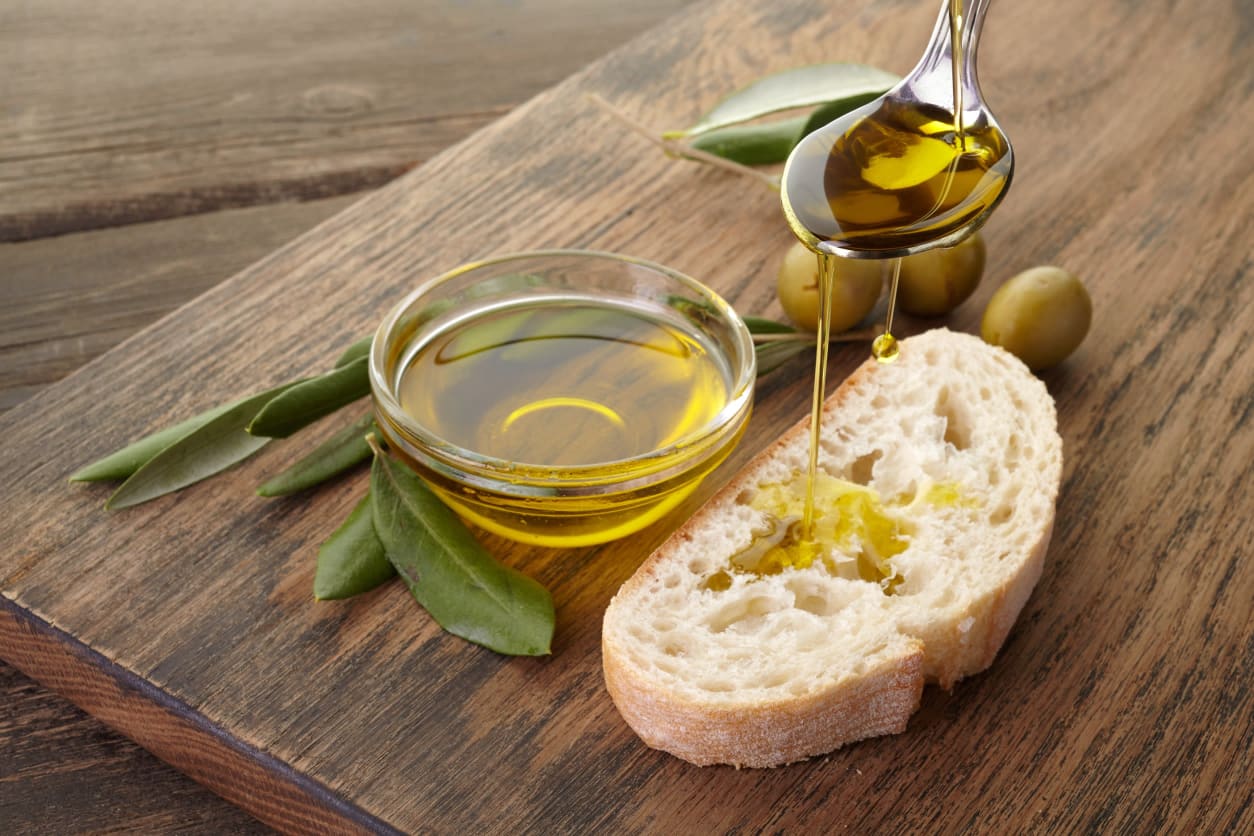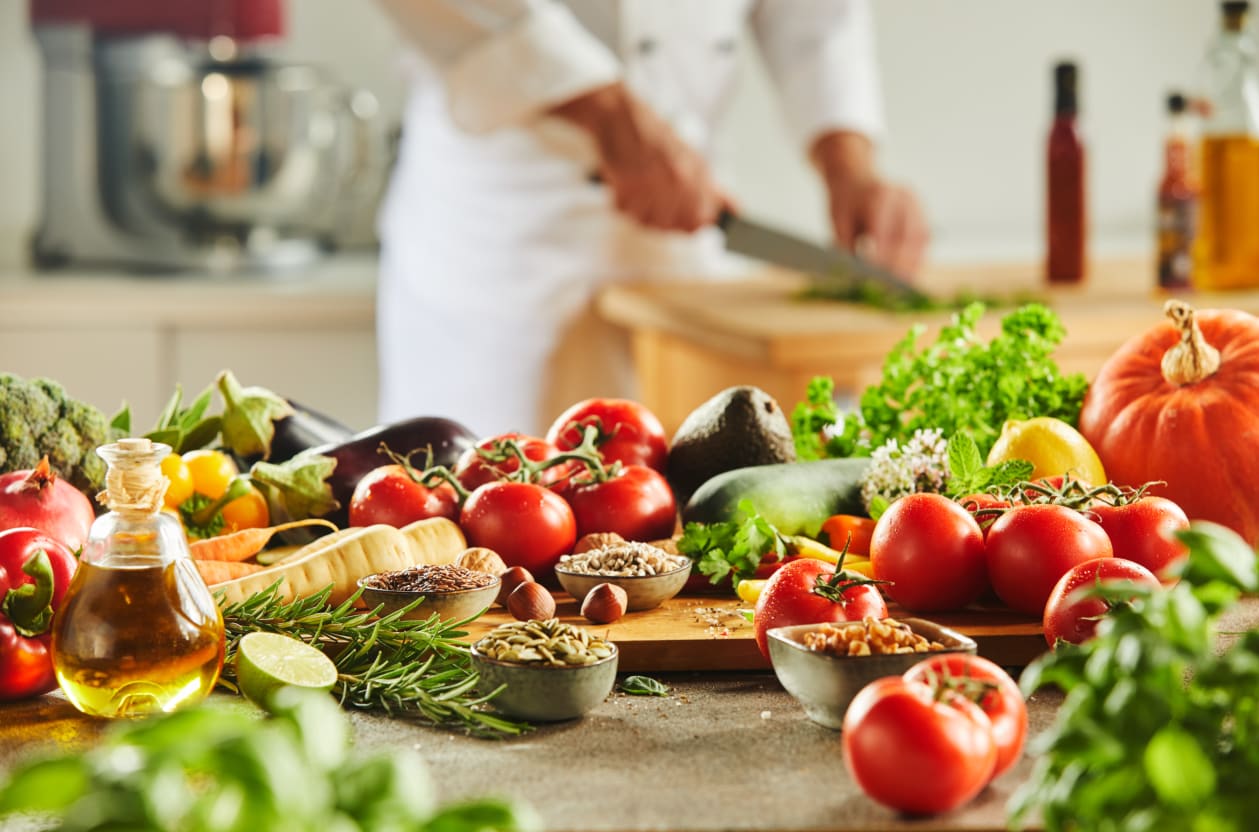Based on an array of fresh produce, the traditional Mediterranean diet is packed with good nutrition, but how we cook can make all the difference.
Often recommended for a healthy lifestyle, the Mediterranean diet is considered to be helpful for lowering inflammation and even supporting mood — which can often be a struggle for many of us during winter months.
How we use its ingredients, however, could change how much we benefit from it.
How to cook with olive oil
Olive oil, often considered to be the very heart of Mediterranean cooking, can be used raw — or for short bursts of shallow frying, which may actually help to prevent some vitamins from degrading.
As heat from frying dehydrates the surface of the food, forming an outer crust, the remaining water is trapped in the food’s core.
Then as the food’s core temperature reaches water’s boiling point of 100C, a steaming process is created inside.
The dehydrated outer crust also helps to prevent water soluble vitamins from leaching out, and restricts oil from penetrating; although vitamin content will degrade over longer cooking times.
As an aside, this is why it’s important to bring oil to heat before adding the food.
With some foods, if the oil is not hot enough, a crust won’t be formed and oil can then seep into the food, making it greasy.
Cooking vegetables with olive oil may also make certain nutrients more available (bioavailable) to us.
One study reported that vegetables cooked in extra virgin olive oil absorb significant levels of antioxidants from the olive oil.
In addition, the process can enhance the bioavailability and absorption of phytochemicals, especially carotenoids, from the vegetables.

Releasing antioxidants
Carotenoids such as carotene, lycopene, zeaxanthin and lutein are found in the pigments of vegetables, fruits and cereals.
In green leafy vegetables, these are bound in plant protein; whereas in carrots and tomatoes they have a semi-crystalline form.
Chopping, blending and cooking help to release carotenoids, whilst fats (such as olive oil) help them to be absorbed in the gut.
If you want something warming, however, consider a stew. A popular cooking technique in the Mediterranean, stewing may increase the bioavailability of carotenoids by as much as 36%.
This is because as the cells in vegetables break down, carotenoids are released into the stew mix.
Or if you like soups, add some olive oil — but later in the cooking process. Research suggests that fewer phenols are lost if olive oil is added towards the end of cooking.
How to maximise the health benefits of onion and garlic
As with many things, cooking often has a sweet spot. With onions, that may be somewhere between five and 10 minutes.
According to research, after five minutes of moderate frying, degradation of the onion’s cell wall allows concentrations of a flavonoid called quercetin to increase. More than 10 minutes, however, and the quercetin levels decrease.
With garlic, crushing it and letting it stand raw for a few minutes could increase its benefits.
This is because alliin, found in garlic, is converted by an enzyme called alliinase to produce allicin, which has anti-microbial properties.
Because alliinase degrades with heat, this standing time is thought to make the process more effective.

Dress it up
Even in winter, a salad can be a delicious addition to a warm meal, and serving some vegetables raw can protect unstable vitamins from heat and cooking distress.
Dressing a salad up in olive oil, vinegar, herbs or spices can also increase antioxidant levels.
Beyond the Mediterranean
If the Mediterranean isn’t where your culinary heart lies, all of these tips can be applied to whatever your preferred cuisine may be.
Whilst important to the traditional Mediterranean diet, vegetables, fruits, nuts, legumes, wholegrains, herbs and spices will bring variety to any table.
And whatever you choose to cook, even if it’s like winter outside, you can be Mediterranean-style in the kitchen!
Enjoyed this article?
Dive deeper into olive oil
For articles and recipes subscribe to Optimum Nutrition
Discover our courses in nutrition






